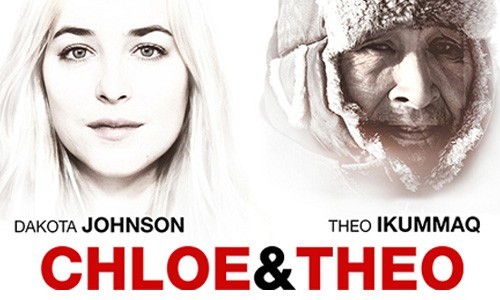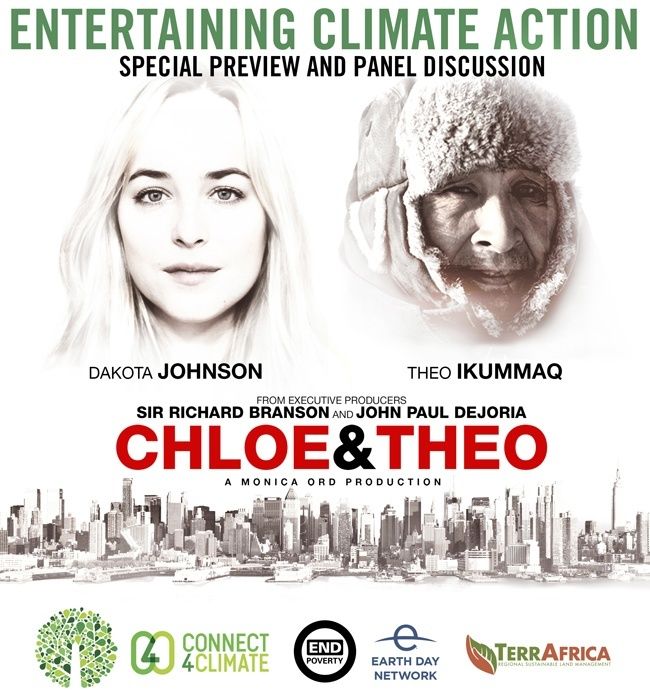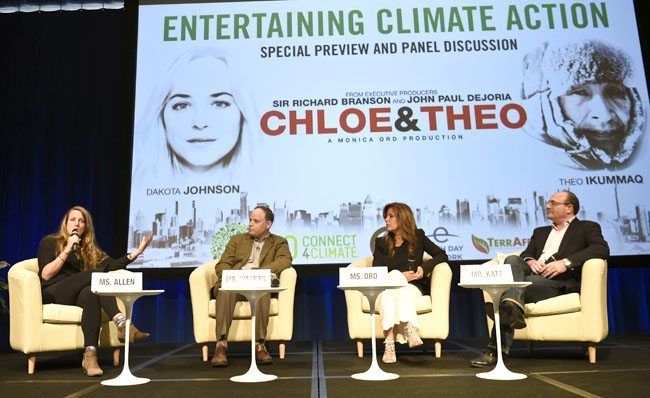
World Premiere of Chloe & Theo and Its Extraordinary Behind-the-Scenes Story



Prior to the screening in the Preston Auditorium at the World Bank Headquarters in Washington, DC, an esteemed panel—including film producer Monica Ord, founder and president of Prospero Pictures Martin Katz, director of social responsibility at MTV International Julie Allen and moderator Joe Wagner from Fenton Communications—discussed the power of film and how it can truly transform society.
“Film can change people’s lives and have far reaching effects on how we live,” said Wagner prior to introducing the panel.
He first introduced Ord, an entrepreneur focused on critical global social and health issues, who explained that she heard Theo’s true story from a friend, who challenged her to do something about it, so she did.
Ord told the crowd of more than 200 people that Theo told her friend “a passionate story of what was happening to his people” and that “he wanted someone to come up with a famous person that could go to the Arctic and maybe bring some awareness.”
Ord called Theo and asked him what she could do and he asked her to get someone to help him. So she called Richard Branson and “he cleared his entire schedule and a month later we were all in the Arctic traveling by dog sled.”
Ord confessed that she had no knowledge of climate change or filmmaking, but was committed to getting this project done.
Monica Ord: “People need to feel what the people on the frontline of #climatechange are facing” #TakeOn pic.twitter.com/W4FpwMvONg
— Connect4Climate (@Connect4Climate) April 15, 2015
Wagner then asked Katz, producer of the award-winning, historical film Hotel Rwanda, to talk about “what is the essence of film that enables one to create these connections and render such powerful responses and can this be applied to the subject of climate change?”

 233k
233k  41k
41k  Subscribe
Subscribe 
